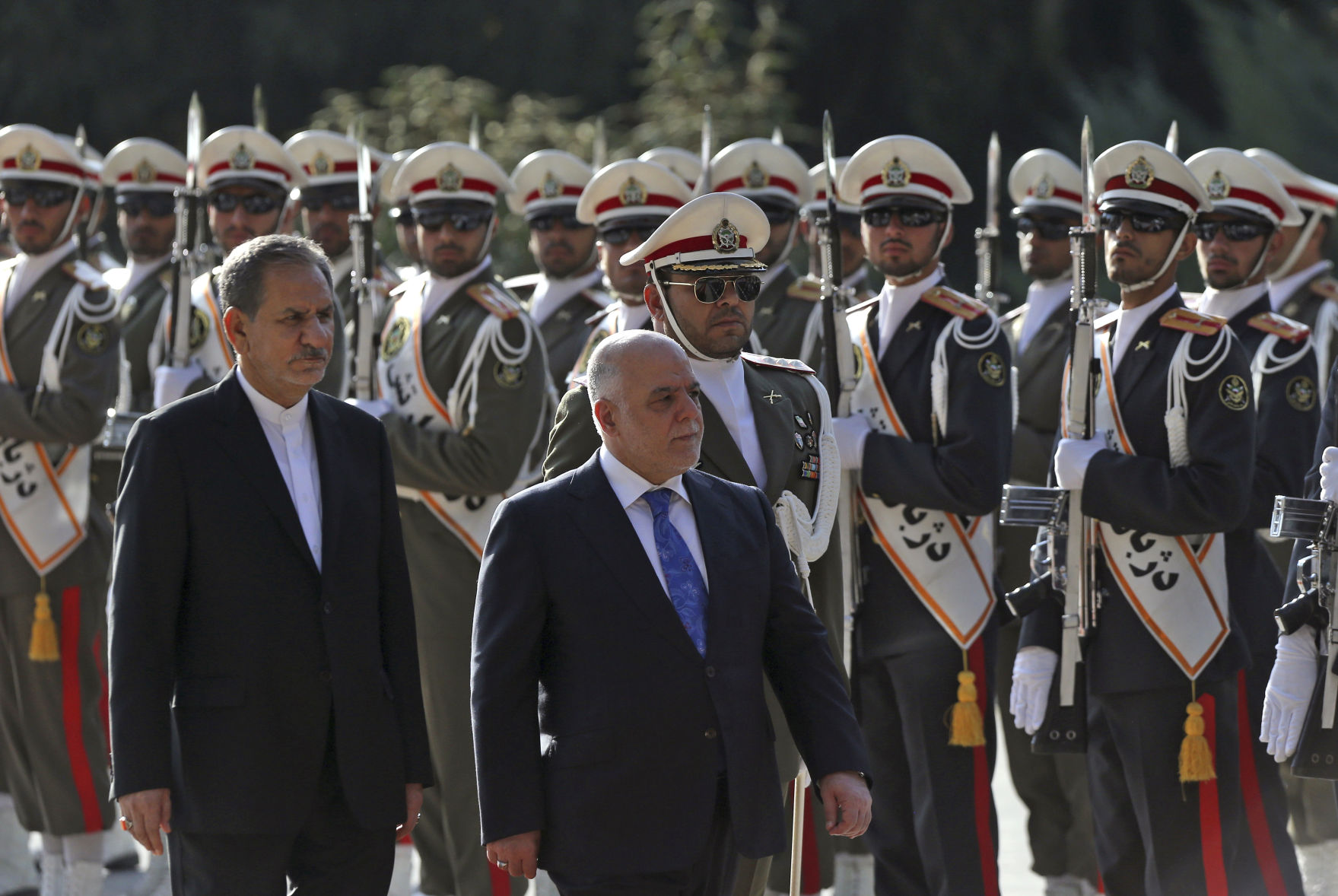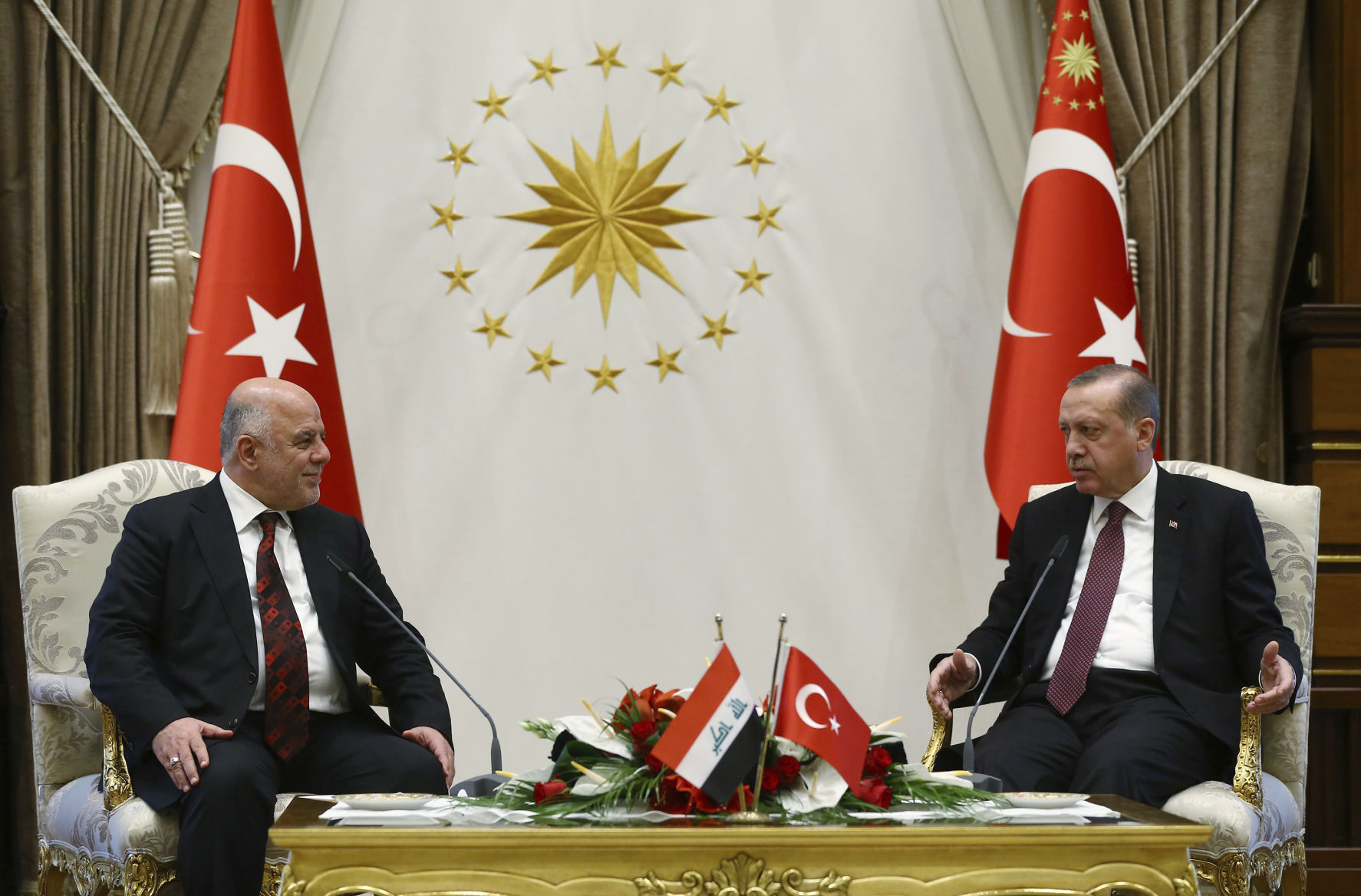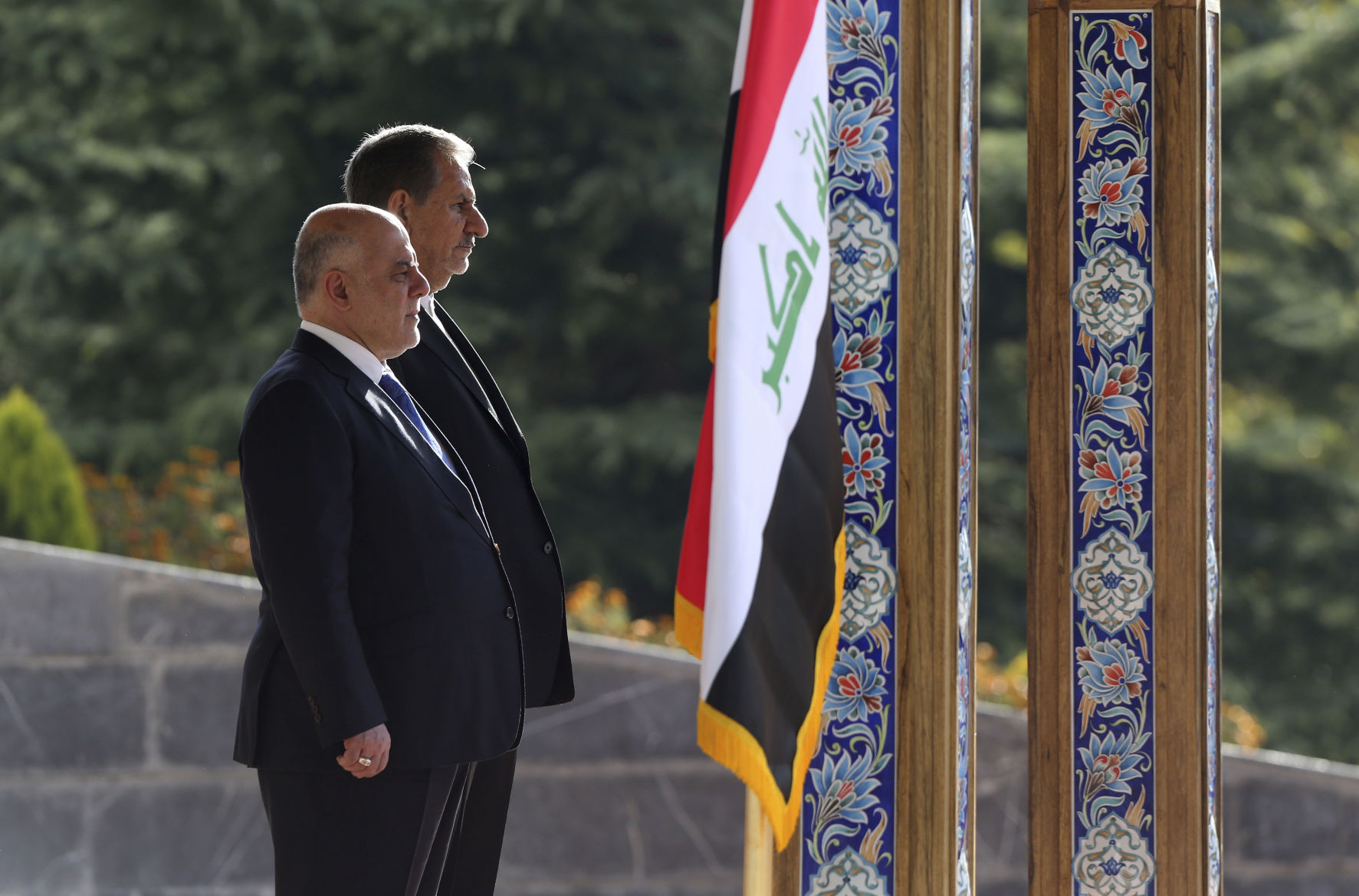BAGHDAD (AP) — Iraq’s prime minister on Thursday dismissed a Kurdish proposal to “freeze” the results of last month’s independence vote, as Iraqi government forces and Kurdish fighters traded fire near the border with Turkey. Haider al-Abadi’s office released the
BAGHDAD (AP) — Iraq’s prime minister on Thursday dismissed a Kurdish proposal to “freeze” the results of last month’s independence vote, as Iraqi government forces and Kurdish fighters traded fire near the border with Turkey.
Haider al-Abadi’s office released the comments as he met with Iran’s supreme leader and other officials in Tehran. Both Iran and neighboring Turkey opposed the referendum, and have sided with Baghdad in the escalating dispute.
Iraq’s central government “will accept only the cancelling of the referendum and following the constitution,” al-Abadi said in the statement, rebuffing what appeared to be an attempt by Kurdish leaders to save face.
More than 90 percent voted in favor of independence from Iraq in last month’s non-binding referendum, which Kurdish leaders had billed as an opening bid in negotiations with Baghdad over expanded autonomy.
Instead, federal forces responded by retaking Kirkuk and other disputed areas outside the Kurds’ autonomous region. Most Kurdish forces have withdrawn without a fight, but scattered clashes have broken out, pitting two close U.S. allies against each other.
Iraq’s Kurdish regional government on Thursday accused Iraqi forces of “launching an offensive” against Kurdish forces along the border with Turkey.
“This is a blatant violation of the Iraqi constitution, which forbids the use of the army to settle political disputes. We condemn Iraq’s military aggression in the strongest terms,” the Kurdistan Region Security Council said.
Ahmed al-Asadi, a spokesman for the mostly Shiite state-sanctioned militias known as the Popular Mobilization Forces, said Kurdish troops opened fire on federal forces as they moved toward the border. He said the clashes caused no casualties.
The U.S. is closely allied with both the Iraqi military and Kurdish forces, which together have driven the Islamic State group from most of the country. But the top U.S. general in Iraq warned this week that the battle against the extremists is not yet over, and said the dispute with the Kurds has diverted precious resources.
“We don’t need Iraqis killing Iraqis when we’ve got Daesh to kill out in the west,” said Lt. Gen. Paul Funk, the commander of the U.S.-led coalition against IS in Iraq and Syria. Daesh is the Arabic acronym for IS, which still holds territory straddling Iraq’s western border with Syria.
The coalition has said Iraqi and Kurdish troop movements and low-level skirmishes are stretching its intelligence and surveillance assets. Drones that previously kept watch over IS have been diverted to flashpoints in the disputed areas.
Army Col. Ryan Dillon said the infighting has also hindered the movement of military equipment and supplies to forces battling IS in Iraq and neighboring Syria.
On Thursday, Iraq announced an offensive to retake the last major pocket of IS-held territory, on the western edge of the sprawling Anbar province. Al-Abadi said in a statement that the operation aims to liberate the towns of Qaim and Rawa, adding that the militants much choose “death or surrender.”
The prime minister was meanwhile in Iran, where he was welcomed by Supreme Leader Ayatollah Ali Khamenei and other senior officials. Iran has expanded its influence over Iraq throughout the campaign against IS, chiefly by backing the Popular Mobilization Forces. It has also sided with Baghdad in the dispute with the Kurds.
Khamenei’s website quoted him as saying he supports Iraq’s efforts to ensure its “unified sovereignty and territorial integrity.” He also warned al-Abadi to “be careful about the Americans’ deceit and never trust them.”
Both Iran and Turkey have large Kurdish populations, and feared the referendum could encourage separatists. Thousands of Kurds took to the streets in northwestern Iran to celebrate the Iraqi referendum when it was held last month.
———
Associated Press writers Nasser Karimi in Tehran, Iran, Susannah George in Baghdad and Sarah El Deeb in Beirut contributed to this report.




